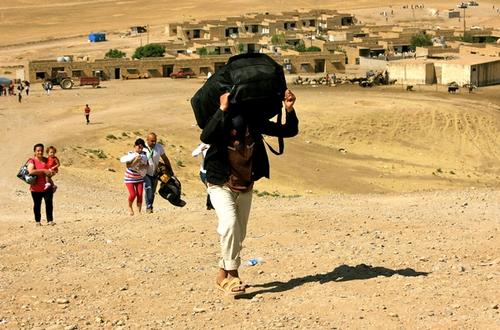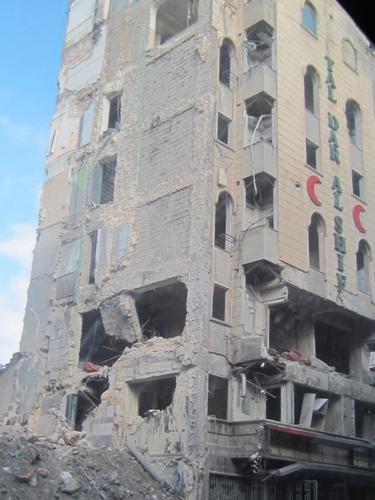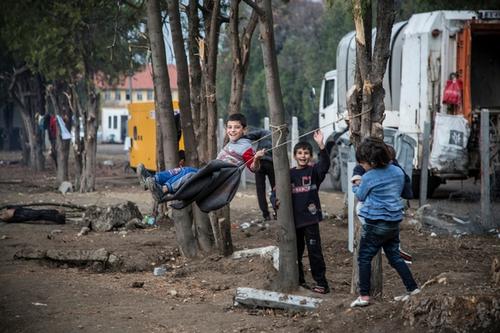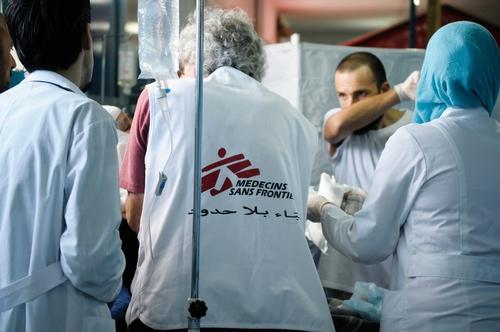Geneva/New York, 18 December 2013 – Greatly increased humanitarian aid must be delivered across Syria’s borders, the international medical humanitarian organisation Médecins Sans Frontières (MSF) urged in an open letter to a group of countries meeting at the United Nations to discuss assistance for Syrians in desperate need.
The “High Level Group on Syria” meeting on 19 December in Geneva follows an October 2nd U.N. Security Council presidential declaration that the group must make initial recommendations for facilitating the delivery of aid in Syria. However, urgently needed aid delivered across Syria’s borders to populations living in opposition areas is not on the agenda. The U.N. believes such assistance constitutes a “red line” for the Syrian government. Nearly all international humanitarian aid is transported via Damascus.
“If the Syrian government remains the main channel for the overwhelming majority of international humanitarian aid, millions of people will continue to be deprived of adequate assistance,” warned Dr Joanne Liu, MSF’s International President.
Tight controls by Syrian government
U.N. agencies and international organisations are subject to tight controls imposed by the Syrian government, which limits or prohibits the distribution of humanitarian aid — particularly medical aid — in opposition-controlled areas.
These obstacles have led to a total blockage of humanitarian aid for people living in enclaves controlled by opposition groups and surrounded by government forces, such as in the Ghouta region. Furthermore, the five to seven million people living in opposition-held territories close to Syria’s international borders receive no medical aid and minimal material assistance from Damascus, underscoring the urgent need for increased cross-border aid deliveries.
Opposition areas deprived of aid
Invoking the risk of government reprisals against their activities in Damascus, U.N. agencies have abandoned efforts to negotiate cross-border access to populations in opposition areas. People in those areas survive thanks only to the work of Syrian solidarity networks and a few non-governmental organisations, including MSF, which provide aid through bordering countries, specifically Turkey. Given the sheer scale of the needs, existing cross-border aid remains sorely inadequate.
“The High-Level Group on Syria must support humanitarian access to all victims of the conflict, whether from Damascus or from bordering countries,” said Dr Liu. “There are many obstacles to delivering aid within Syria which need to be addressed, including the fact that in some areas aid is also being blocked by certain armed opposition groups. However, cross-border assistance into opposition-held areas is a crucial issue that cannot be taken off the humanitarian agenda lest millions be left without assistance. The High Level Group must use their influence on all parties to ensure that agreements will lead immediately to the concrete opening of humanitarian access in Syria."







